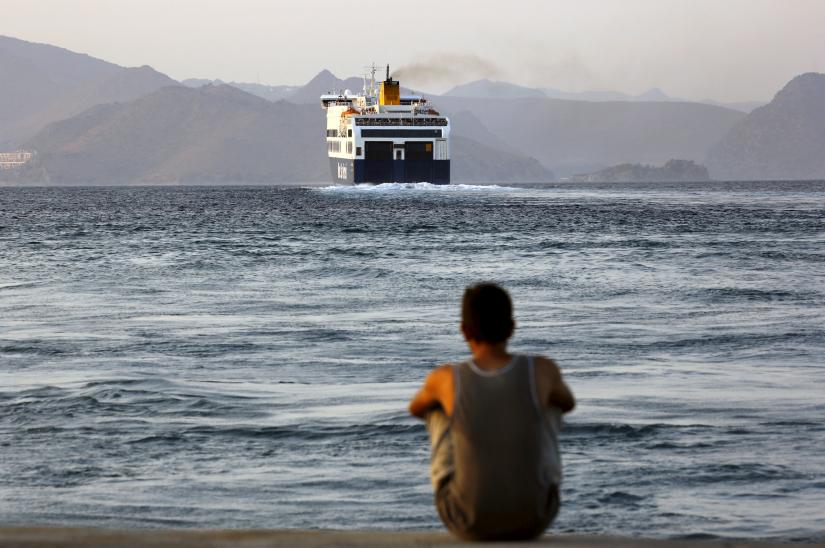 The US State Department has kept Bangladesh in tier 2 ‘surveillance’ list for the third consecutive time over human trafficking, mentioned a yearly report, ‘Trafficking in person 2019.’
The US State Department has kept Bangladesh in tier 2 ‘surveillance’ list for the third consecutive time over human trafficking, mentioned a yearly report, ‘Trafficking in person 2019.’
Between 2012 and 2016, Bangladesh was kept in tier 2. In 2017, Bangladesh was put down one step and put under tier 2 ‘surveillance’ list.
Specialists feel that this is due to the rise of middlemen, non-establishment of a human trafficking tribunal and lack of coordination among the ministries.
The state department report, published in Jun 20, says that efforts taken by the Bangladesh government to prevent human trafficking are ineffective. Despite major accusations, steps are not being taken against traffickers.
The report further adds: “The risk of trafficking has risen as no steps were taken against middlemen. Due to the Trafficking Victim Protection Act, Bangladesh was not demoted to tier-3. Along with Bangladesh are, Sri Lanka, Maldives, Afghanistan and 35 other countries like Algeria, Brunei, Cambodia, Congo, Gabon, Hungary, Iraq, Malaysia, Romania and Vietnam.”
Migration experts say that if the government’s plan of action is not implemented then Bangladesh will be demoted further. In 2012, Bangladesh formulated the human trafficking prevention and control activities and as per BRAC Migration Programme, so far, 4,668 cases have been lodged, but only 245 were settled.
Head of BRAC Migration Programme, Shariful Hassan, says: “I do not agree to the idea of free movement of the Rohingyas because if that is allowed then human trafficking will rise.”
The state department report mentions deceptions/fraudulence that happen in the name of foreign employment, he said, adding: “If we can implement the national plan of action, we will be able to give material form to recommendations by the state department.”
When the issue of trafficking is raised, Ministry of Expatriate Welfare feels it’s the work of the Home Ministry and vice versa; there has to be coordination here, commented Hassan.
US-based institution Winrock International has been working on human trafficking for a long time and its programme officer, Aquib bin Anwar, said: “The infrastructure has not been developed by the government; the human trafficking prevention law talks of a special tribunal which has not come into fruition as yet; the formation of Counter-Trafficking Committee, CTC, is happening slowly; in addition, case settlement rate is very low.”
Researcher of Refugee and Migratory Movement Research Unit, Dr Jalal Uddin Sikder, says: “Bangladesh government could not take adequate measures to stop irregular migration; the matter was not given due importance. As a result, we see boat capsizes on the Mediterranean, where most victims are Bangladeshis.”
“We have a powerful human trafficking prevention law which is not implemented,” he deplored.
“A separate tribunal has been formed to counter repression of women and children but a tribunal for human trafficking has not been formed as yet.”
Additional secretary of the home ministry, Abu Bakar Siddiqui, said: “We have a plan to organise a regional workshop with IOM to reduce problems related to human trafficking; until the special tribunal is formed, the tribunal for women and child repression will be used to settle cases.”
The main problem of the human trafficking cases is that after lodging a case, witnesses do not come to court; they reach a compromise with the accused and take compensation. As a result, the cases never move forward, he informed.
Acting chairman of National Human Rights Commission, Nazrul Islam, assured: “the matter will be evaluated soon.”
 Others
Others
40382 hour(s) 6 minute(s) ago ;
Morning 09:01 ; Monday ; May 26, 2025
Bangladesh’s trafficking situation needs proper attention
Send
Saddif Ovee
Published : 07:30, Jul 31, 2019 | Updated : 16:26, Aug 01, 2019
Published : 07:30, Jul 31, 2019 | Updated : 16:26, Aug 01, 2019
0 ...0 ...
/tf/
Topics: ExclusiveTop Stories
- KOICA donates medical supplies to BSMMU
- 5 more flights to take back British nationals to London
- Covid19: Rajarbagh, Mohammadpur worst affected
- Momen joins UN solidarity song over COVID-19 combat
- Covid-19: OIC to hold special meeting
- WFP begins food distribution in Cox’s Bazar
- WFP begins food distribution in Cox’s Bazar
- 290 return home to Australia
- Third charter flight for US citizens to return home
- Dhaka proposes to postpone D8 Summit
Unauthorized use of news, image, information, etc published by Bangla Tribune is punishable by copyright law. Appropriate legal steps will be taken by the management against any person or body that infringes those laws.
Bangla Tribune is one of the most revered online newspapers in Bangladesh, due to its reputation of neutral coverage and incisive analysis.
F R Tower, 8/C Panthapath, Shukrabad, Dhaka-1207 | Phone: 58151324; 58151326, Fax: 58151329 | Mob: 01730794527, 01730794528


